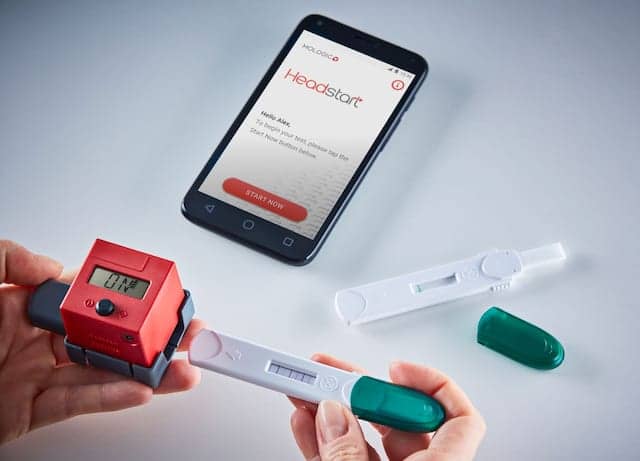Mologic, Thurleigh, UK, has started a clinical trial to validate Headstart, the company’s noninvasive self-test that detects five biomarkers indicative of infection and inflammation in the urine of patients living with moderate to severe chronic obstructive pulmonary disease (COPD). Supported by a consortium of clinical experts, the observational trial known as Cope-Wel has recently started recruitment of 263 patients in the United Kingdom.
The Cope-Wel trial expands on a previous proof-of-concept study that successfully demonstrated the use of Headstart as a multibiomarker diagnostic self-test with the ability to predict the early onset of a COPD exacerbation up to 6 days prior to symptom onset or up to 9 days prior to clinical diagnosis by a healthcare provider. The current trial will clinically validate the machine-learning algorithm and five selected biomarkers integrated into the Headstart system.
Patients will conduct daily urine testing to establish a baseline biomarker profile and will then monitor the biomarkers for changes over a period of 6 months. The Headstart system is designed for home monitoring and integrates a simple, easy-to-use diagnostic with a reader and mobile phone app to capture patient-specific health data. Recorded data are digitally transferred to care providers for monitoring, and provide patients early warning of an exacerbation event, prior to clinical signs.
COPD is a progressive, life-threatening lung disease that causes breathlessness and predisposes patients to frequent attacks, resulting in serious illness, hospitalization, and even death. Symptoms often don’t appear until significant lung damage has already occurred, usually worsening over time. If exacerbations can be identified before the symptoms appear, they can be dealt with earlier, limiting their effect and potential consequences.
Globally, an estimated 251 million people are living with the condition, according to the World Health Organization. The more than three million COPD-associated deaths each year are projected to increase by more than 30% over the next 10 years.
For more information, visit Mologic.





